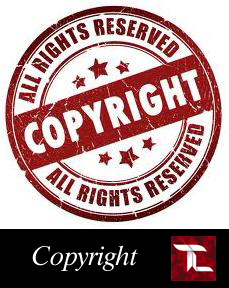This article gives the information of “COPYRIGHT”. Copyright is a set of exclusive granted by law of a jurisdiction to the author or creator of an original work, including the right to copy, distributor and adapt the work. Exception and Limitation to this right strive to balance the public interest in the wide distribution of the material produced and to encourage creativity. Exception includes good dealing and good use, and such use does not require the access of the copyright owner. All other user requires permission and copyright can license or permanently transfer or assign their exclusive right to other.
Copyright does not hide ideas, only their expression. In most jurisdictions, copyright come upon fixation and does not need to be registered. Copyright support applies for a some period of a time, after which the work is said to enter the public domain. Copyright Infringement is the unauthorized or prohibited use of work under copyright, infringing the copyright the copyrighted work or to make derivative work.
COPYRIGHT ACT 1957
India has one of the most modern copyright protection laws in the world. Little implementation in the area of copyright during 1999 was the amendment to the copyright act of 1957 to make it fully compatible with the provision of the TRIPS. The provision of this act is a reflection of the international instrument.
The act defines computer and computer program “Computer Program” means a set of instruction expressed in words, codes, schemes or in any other for, including a machine readable medium, capable of a causing a computer to perform particular task or achieve particular result. The literary work is defined as that which includes computer program, tables and compilations including computer databases. This addition in the act widened the scope of protection under the copyright act, 1957 that is Law.
Copyright, in relation to computer program means the exclusive right to do or authorize to do ant of the following:
- To reproduce the work in any material form including the storing of it in any medium by electronic means.
- To issue copies of the work to the public not being copies already in circulation.
- To perform the work in public or communicate it to the public
- To make any cinematographic film or sound recording in respect of the work.
- To make any translation of the work.
- To make any adaption of work.
- To do, in relation to a translation or an adaption of work any of the act specified in the relation to the work in the above.
To do any of the above acts related to the computer program or to use it, a license is required from owner. Any person who knowingly makes use on a computer of an infringing copy of a computer program is liable to be punished with imprisonment for a term of at least seven days and can be extended to three years and with fine of at least Rs. 50,000(fifty Thousand).
The term of copyright in published literary work published within the lifetime of the author is 60 years from the beginning of the calendar year following the year in which the author dies. This is what about a copyright.
